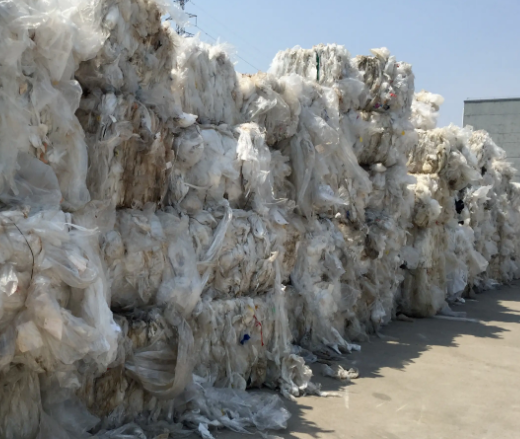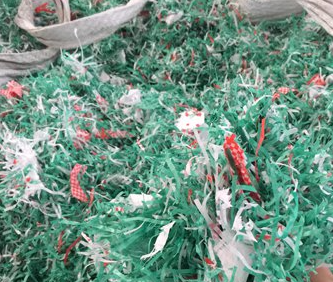Copyright © 2019-2022 Retech Machine. All rights Reserved.
Solving the problem of white pollution caused by waste plastics is the original intention of most countries in the world to introduce policies related to plastics governance. At present, the international response to the problem of waste plastics mainly adopts methods such as restricting or prohibiting the use of plastic products that are difficult to recycle, encouraging plastic recycling, and using degradable plastics instead. Among them, strengthening plastic recycling is the international mainstream trend.
Increasing the proportion of plastic recycling is the first choice of developed countries. The EU has imposed a "plastic packaging tax" on non-recyclable plastics from January 1, 2021, and banned 10 single-use plastic products such as expanded polystyrene from entering the European market. The packaging tax is forcing plastic product companies to use recycled plastics. By 2025, the EU will use more recyclable packaging materials. At present, my country's annual consumption of plastic raw materials is more than 100 million tons, and it is expected to reach more than 150 million tons in 2030. According to rough estimates, my country's plastic packaging exports to the EU will reach 2.6 million tons in 2030, and the packaging tax will be 2.07 billion euros. With the continuous advancement of the EU plastic packaging tax policy, the domestic plastics market will face challenges. Under the catalysis of packaging tax, it will be imperative to add recycled materials to plastic products to ensure the profits of Chinese enterprises.
At the technical level, the current research on the green development of plastics in developed countries mainly focuses on the design of easy recycling of plastic products and the development of chemical recycling technology. Although biodegradable technology was first initiated by European and American countries, the enthusiasm for its technology promotion is not high at present.

In the future, my country's plastic recycling rate will increase significantly. By 2030, my country's plastic recycling rate will reach 45% to 50%. Its power mainly comes from four aspects:
First, the lack of environmental carrying capacity and the vision of building a resource-saving society require the whole society to increase the recycling rate of plastics;
Second, the carbon trading price continues to increase, and every ton of plastic recycled will reduce carbon by 3.88 tons in the entire life cycle of plastics, greatly increase the profit of plastic recycling, and promote a substantial increase in the recycling rate;
Third, all major plastic products companies have announced the use of recycled plastics or the addition of recycled plastics. In the future, the demand for recycled materials will increase significantly, and the price of recycled materials may be inverted;
Fourth, carbon tariffs and packaging taxes in Europe and the United States will also force my country to significantly increase the recycling rate of plastics.
First, factors such as scattered sources of waste plastics, huge differences in the shapes of waste plastic products, and various types of materials make it difficult and costly to recycle waste plastics in my country.
Second, the waste plastic recycling industry has a low threshold, and most of them are workshop-type enterprises. The sorting method is mainly manual sorting, and there is a lack of automated fine sorting technology and industrial equipment. As of 2020, there are 26,000 plastic recycling enterprises in China, which are small in scale, widely distributed and generally weak in profitability. The characteristics of the industry structure have led to the problems of difficult supervision and huge investment in supervision resources in my country's plastic recycling industry.
Third, the fragmentation of the industry has also led to intensified vicious competition. Enterprises pay more attention to product price advantages and reduce production costs, and despise technology upgrades. The overall development of the industry is relatively slow. The most important way to use waste plastics is to make recycled plastics. After manual screening and classification, and then through processes such as crushing, melting and dicing, and modification, the waste plastics are made into recycled plastic particles that can be used. Due to the complex sources of recycled plastics and many impurities, the product quality stability is extremely poor. There is an urgent need to strengthen technical research and improve the stability of recycled plastics. Due to the high cost of devices and catalysts, the chemical recovery method cannot be commercialized at present. Continuing research on low-cost processes is the key research and development direction.

1. Increase policy support such as carbon tax subsidies, tax incentives and waste plastic resources inclination for the chemical recycling of waste plastics. First of all, the carbon emission in the chemical recycling process of waste plastics is about 2 tons/ton less than the carbon emission in the whole life cycle of virgin plastics (from crude oil exploration to combustion). From the perspective of the whole society, the chemical recycling of waste plastics is a carbon reduction process, so Carbon reduction should be given to waste plastic chemical recycling enterprises. Secondly, the chemical recycling process of waste plastics is a whole-industry process from waste plastics collection, sorting and cleaning, waste plastics pyrolysis, and petrochemical processing into recycled plastics. There are huge differences in the majors of each step, and most of them are handled by different companies. Each step should enjoy preferential tax policies, not only waste plastics collection companies to reduce or exempt value-added tax. Third, the state should vigorously encourage the development of chemical recycling enterprises, cultivate leading enterprises, and tilt the waste plastic resources of sanitation groups and municipal groups to them.
2. Advocate product enterprises to strengthen the design of easy recycling of plastic products. At present, most plastic products are not conducive to physical recycling, so the design of easy recycling in the production stage is a very necessary choice, such as using different grades of metallocene plastics to replace different types of plastics, using water-based ink, laser engraving, paper-plastic ultrasonic combination, FFS Replacement of woven bags and other methods with heavy coating increases the probability of recycling waste plastics at the source.
3. Advocate the whole society to strengthen garbage classification. The recycling of plastics is beneficial to the country and the people. It is necessary to strengthen the education of waste classification in the whole society. The better the waste classification of consumers, the lower the cost to the whole society in the later stage.
For more information about plastic recycling, please do not hesitate to contact us.